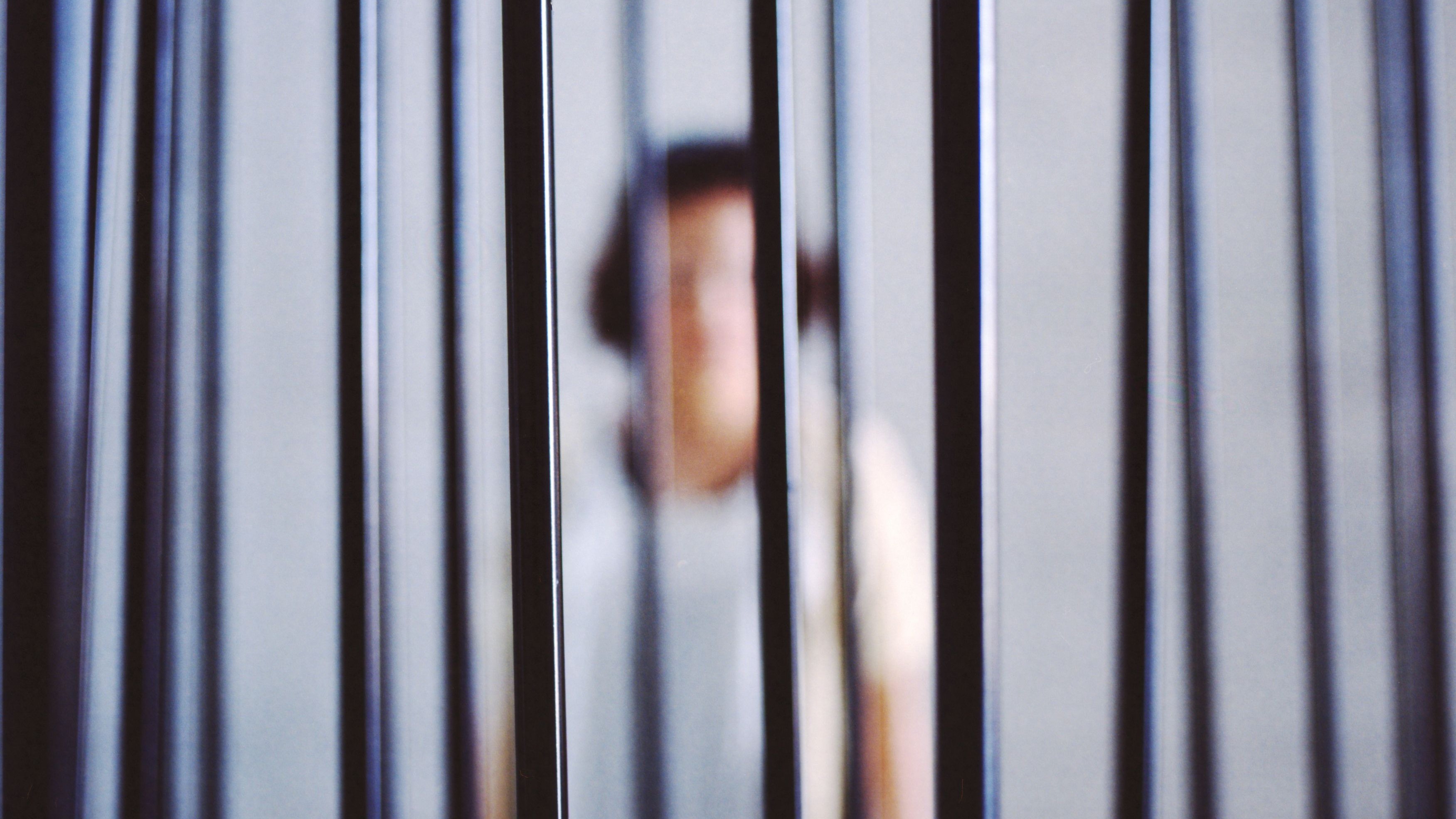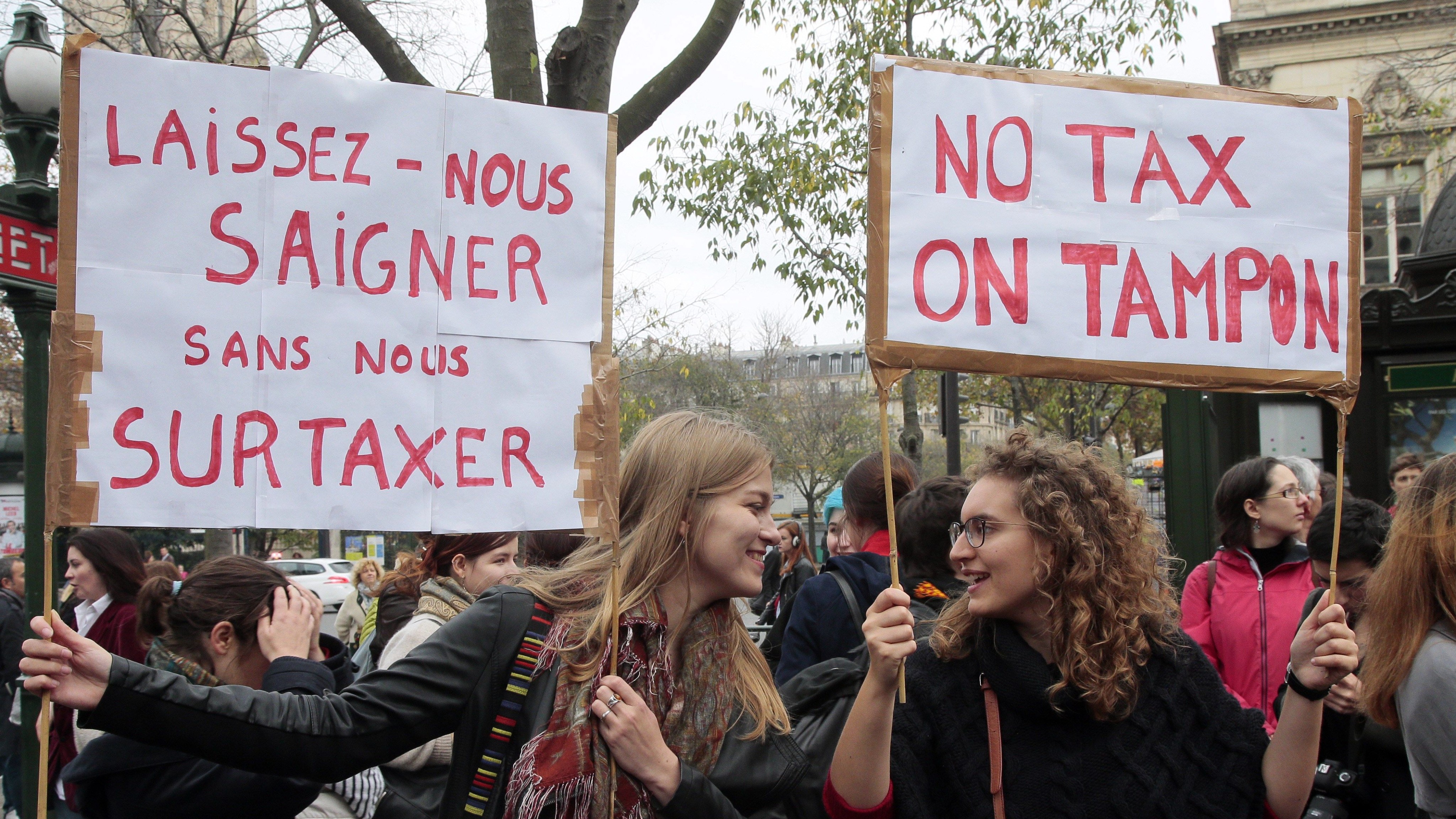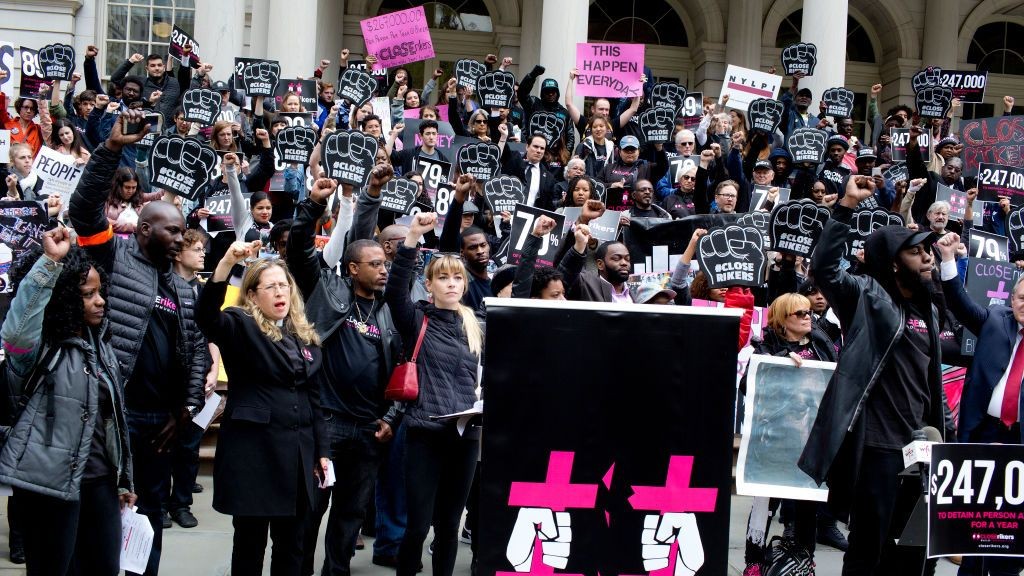This New Criminal Justice Bill Could Finally Give Incarcerated Women the Period Products They Need
Right now, pads and tampons are considered a luxury for many inmates.

A bright spot has appeared at the tail-end of a year likely to be remembered for its extraordinary government-approved cruelty in the form of a bipartisan justice reform bill, which is expected to pass Congress and has the support of President Trump. The sweeping new bill offers better access to period products and more humane treatment of pregnant women in incarceration.
Called the First Step Act, the bill does away with many of the racist, antiquated policies currently in place in the criminal justice system. That means things like the “three strikes” rule (in which an offender charged three times for the same drug-related crime gets automatic life in prison) and mandatory minimums for drug offenses are both scrapped under the new legislation. Where incarcerated women are concerned, the act also bans the shackling of pregnant prisoners when in labor—something that’s still legal in a few states.
Surprisingly, menstrual equity even gets a shoutout. If you haven’t heard that term, menstrual equity is the movement to get rid of the stigma against periods and the people who have them on a global level. In some countries, the stigma of menstruation causes young women to miss school, while here in the U.S., many states still tax menstrual products as a luxury even though a lot of women view them as a necessity—the so-called “tampon tax”. It’s a movement that’s been gaining a lot of traction in recent years, with many states repealing tampon taxes and passing laws that provide period products in schools. Meghan Markle even spoke out about the need for menstrual equity in an essay for Time last year.

Women in Paris protest a tampon tax.
The First Step Act mandates that tampons and pads be provided to inmates. That might not seem like a big deal, but it could lead to some really important reform. The U.S. has the highest incarceration rate for women of any country on the planet, which means that basic needs that people on the outside of the prison system may take for granted are actually really difficult to acquire for the 219,000 women who are currently incarcerated here.
The First Step Act is a signal from the federal government that the tide may be turning. “There’s been acknowledgment that our criminal justice system was not built with women’s needs and women’s bodies in mind,” explains Jennifer Weiss-Wolf, author of Periods Gone Public: Taking a Stand for Menstrual Equity, and Women and Democracy Fellow at the Brennan Center for Justice at NYU Law, in an interview with MarieClaire.com. “It wasn’t really until the 1990s that women started being swept into the criminal justice system with more frequency, really has a result of harsh drug laws, so we’ve had this crisis brewing for the past couple of decades where there are more and more women being incarcerated at quicker and quicker rates.”
Weiss-Wolf notes that its inclusion in the First Step Act is a “huge signal” that this issue has gained traction, but says that, like the name, this has to be just one step of many. “The language is rudimentary—it just requires that they be provided, which obviously requires some subjectivity on the part of the federal prison that’s going to be implementing it,” she says. “I would say that menstrual access provisions are a great first step, but it’s all about oversight and implementation.”
But just that simple mention can be powerful. Even though, according to a study by the Justice Action Network, 90 percent of voters agree that it’s necessary to provide menstrual products in prison, some state legislatures hesitate to pass period bills for women in prison. “What is meaningful about this federal reform is that the states often take their cue from what the federal government is doing,” Weiss-Wolf says. “When they see senators like Grassley and McConnell voting for this, and when they know President Trump is going to sign this, that gives them a lot more cover to push this kind of legislation.”
Get exclusive access to fashion and beauty trends, hot-off-the-press celebrity news, and more.

At a rally to shut down Rikers Island prison in 2017.
In other words, this is a really positive step in the right direction. In fact, though 2018 has seen some dire news where women’s healthcare access is concerned, from harsher abortion restrictions on the state level to a judge’s ruling that the Affordable Care Act is unconstitutional, there have also been some strides forward made in the realm of period equity. Weiss-Wolf points out that Nevada repealed its tampon tax by a vote this year, and three states—New York, Illinois, and California—have new rules on the books about providing period products to schools.
It’s a much-needed sign that the battle for healthcare access, especially for women, can still be won.
[editoriallinks id='14d45d67-1931-4a31-a6c9-91ae55d9e2b2'][/editoriallinks]
Related Story

Cady has been a writer and editor in Brooklyn for about 10 years. While her earlier career focused primarily on culture and music, her stories—both those she edited and those she wrote—over the last few years have tended to focus on environmentalism, reproductive rights, and feminist issues. She primarily contributes as a freelancer journalist on these subjects while pursuing her degrees. She held staff positions working in both print and online media, at Rolling Stone and Newsweek, and continued this work as a senior editor, first at Glamour until 2018, and then at Marie Claire magazine. She received her Master's in Environmental Conservation Education at New York University in 2021, and is now working toward her JF and Environmental Law Certificate at Elisabeth Haub School of Law in White Plains.